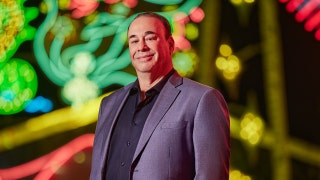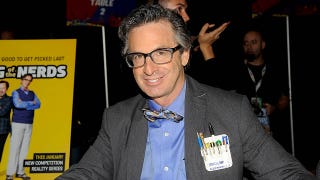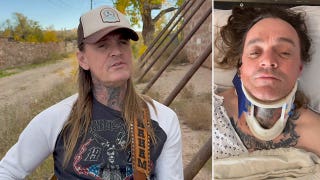Fox News Flash top entertainment headlines of the week
Fox News Flash top entertainment and celebrity headlines are here.
"Botched" star Dr. Terry Dubrow doesn’t let cheating rumors and internet criticism get to him.
"Everyone is sort of looking to knock a successful, stable person down," Dubrow told Fox News Digital.
Dubrow has been married to "Real Housewives of Orange County" star Heather Dubrow for 24 years, and the couple shares four children, twins Nick and Max, Kat and Ace.
The plastic surgeon revealed that his kids are used to internet gossip, and they laugh it off as a family.

Dr. Terry Dubrow said he ignores rumors online, telling Fox News Digital, "Everyone is sort of looking to knock a successful, stable person down." (Amanda Edwards/Getty Images)
"They've been on a reality show with us for, what, 15 years now? They don't pay that close attention. And particularly the stuff on social media, they don't really even see it because they're not looking at the same social media stuff that we adults are looking at. So that's not really been an issue," he said.
As an example, Dubrow shared that he and Heather posted a photo on social media celebrating New Year’s Eve. His hair had been cut and dyed recently, "and the guy left the hair dye in a minute too long and my hair was blacker than normal."
He said that prompted "800 comments, 750 of which were trolling on me because I looked like I had used too much hair dye. And then from then on, it was like, he's terrible looking. He's had so much plastic surgery, which I haven't had any."
"And if I did, I'd be happy to admit it," he added.
CLICK HERE TO SIGN UP FOR THE ENTERTAINMENT NEWSLETTER
Dubrow said he saw articles spring up based on the post and sent them to his kids, revealing, "They think it's so funny. And now they make fun of my hair too. So you get used to it."
"If I was concerned about what negative comments were on the internet or rumors or whatever, I couldn't do what I do. I mean, I couldn't be a functioning husband in a relationship with my family. I think it would be tough to do reality show in general, but you know, you get used to it and you sort of let it wash away," he said.
The 65-year-old noted that some of the trolling can be "vicious." But he’s the first to call himself out.
'BOTCHED' DOCTOR TERRY DUBROW WANTS TO STOP OZEMPIC 'SHAMING' DESPITE SIDE EFFECTS
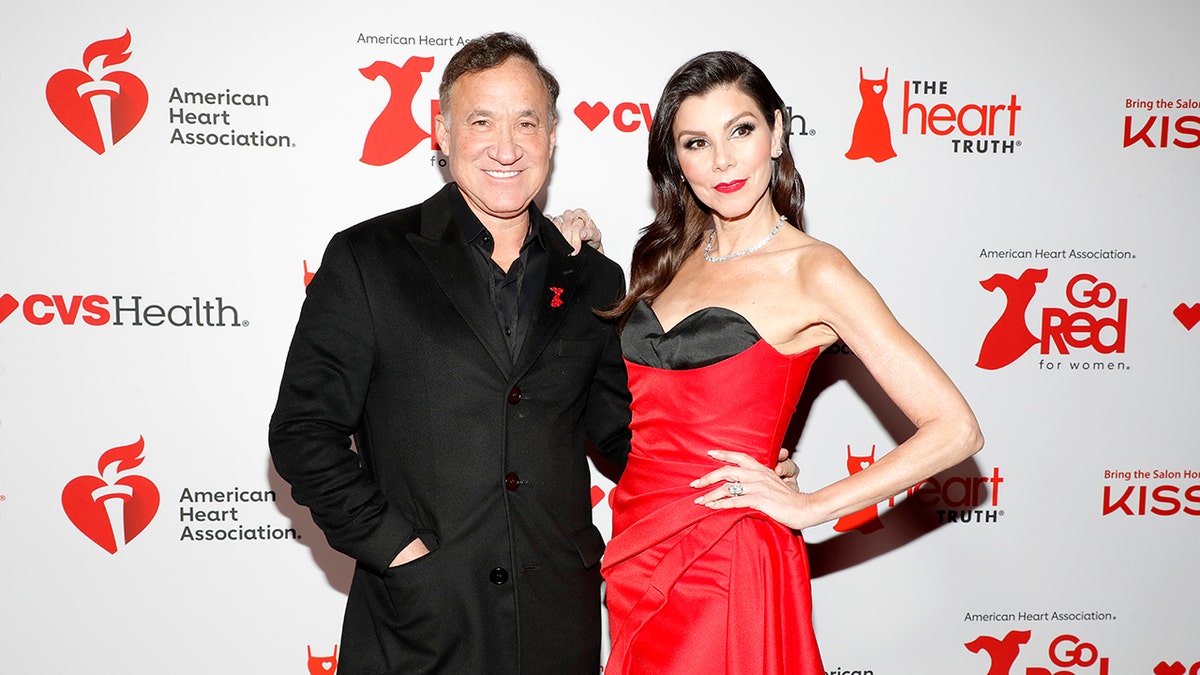
Dubrow said some online comments can be "vicious" but "you get used to it." (Astrid Stawiarz/Getty Images for The American Heart Association's Go Red for Women Red Dress Collection Concert)
"Yeah, I'm not good looking. And I've got a weird nose. And my hair isn't so great. But, you know, to be honest with you, if it bothered me enough, I'd have it all fixed," he said. "I'm a plastic surgeon. I know the best places to go, but I have other things to worry about."
Dubrow instead focuses on his marriage to Heather, and has some insights into how they’ve made it last for nearly 25 years.
"My wife would say separate bathrooms," joked Dubrow, "but I would say there are some sort of big key components to making a long-term relationship work."
The California-born and raised doctor said it’s important to "acknowledge that you're going to have struggles, acknowledge that you're going to have challenges, and it's the way in which you work through those challenges that makes a long-term relationship, a positive functioning situation."
LIKE WHAT YOU’RE READING? CLICK HERE FOR MORE ENTERTAINMENT NEWS
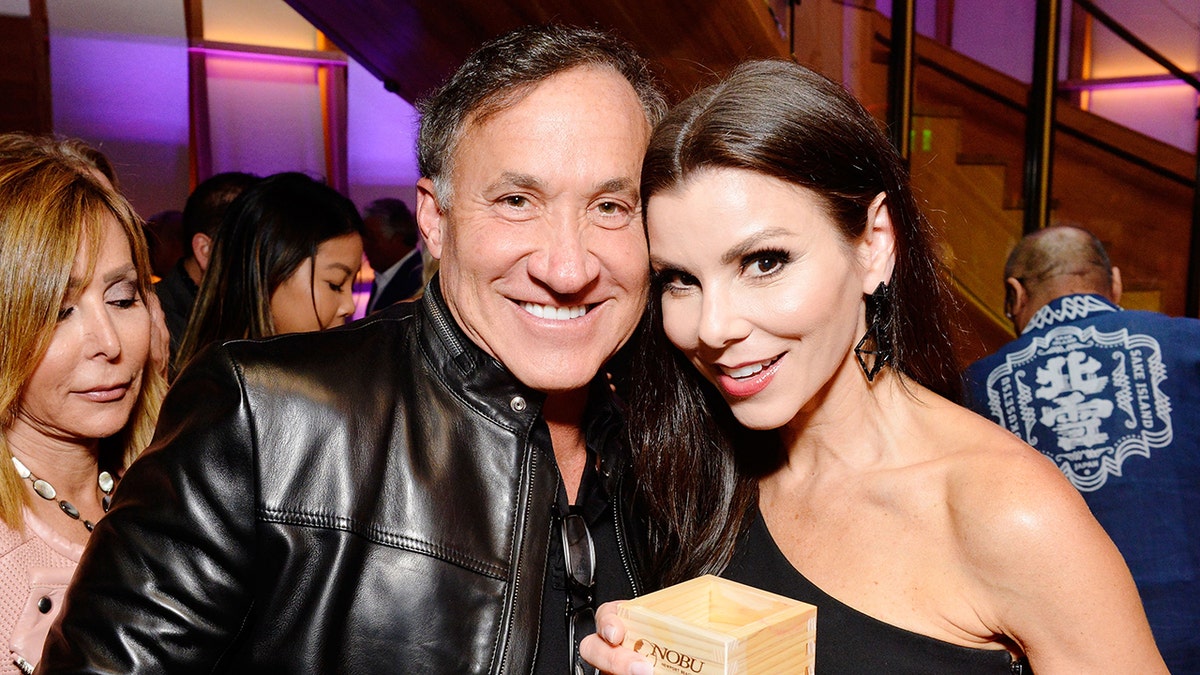
Dubrow joked that his wife, "Real Housewives of Orange County" star Heather Dubrow, would say that separate bathrooms are the key to a lasting marriage. (Jerod Harris/Getty Images for Nobu Newport Beach)
He says he and his wife focus on two important things.
The first is intimacy and maintaining a closeness in their relationship.
"We do it by, this sounds so clinical, but we schedule times that we're going to have intimate moments," Dubrow said. "We planned for them. We try to look forward to them and make jokes about them. But it's something like, you know, we have a date tonight, which means get ready."
The other key is how they handle any arguments or disagreements.
MARK WAHLBERG'S KEY TO A SUCCESSFUL MARRIAGE IS 'COMMUNICATION' AND 'SUPPORT'

Dubrow said he and Heather stay close in their relationship by scheduling intimacy. (JB Lacroix/WireImage)
"We have rules. For example, there's no fighting, no matter how upset you are when there's alcohol in your system. That's just number one. Number two, there's no arguing, fighting, working out problems on Friday and Saturday nights at midnight, right before you go to bed. You just don't do it.
"You know, people say, 'Don't go to bed mad,' go to bed mad! Work it out in the light of day, in the morning when the emotions aren’t as high and you're not going to sort of become disinhibited [and] say things you will regret."
In short, Dubrow suggests, "treat your spouse like you want her to marry you, OK? Not like she's been married to you or he's been married to you for a number of years. Treat them like you want them to marry you. And, you know, put those brakes on when you think you might say or do something inappropriate. But absolutely do not fight when there's alcohol or sleep deprivation going."
Dubrow and Heather’s lasting relationship has proven crucial not just in their romantic lives, but their physical ones as well.
JUDGE JUDY WARNS THIS HABIT WILL KILL YOUR MARRIAGE

Dubrow suggested couples go to bed mad and "Work it out in the light of day, in the morning when the emotions aren’t as high." (Angela Weiss/Getty Images for Elizabeth Glaser Pediatric AIDS Foundation)
In August, Dubrow suffered a transient ischemic attack (TIA), often called a mini-stroke, while dining with his wife and son in Beverly Hills. At dinner, Dubrow briefly slurred his speech, which prompted Heather to instruct their son, Nicholas, 19, to call 911.
Dubrow thought he was fine, but Heather insisted they go to a hospital. After a series of tests, doctors discovered he had a patent foramen ovale (PFO), which is a small hole in the heart.
"I'm doing really, really well. I got really lucky," Dubrow told Fox News Digital.
He explained it can affect patients when they’re young, as was the case with Hailey Bieber and Aubrey Plaza, or when they’re older, like himself.
HAILEY BIEBER STRUGGLES WITH A 'LITTLE BIT OF PTSD' AFTER MINI-STROKE

Dubrow credits his wife with forcing him to seek medical treatment following a mini-stroke, leading to the discovery of a congenital heart defect that was quickly repaired. (Cindy Ord/Bravo via Getty Images)
"I had a hole in my heart called a patent foramen ovale, which you're born with. And a little tiny little clot passed through it and went into my brain and gave me some temporary symptoms."
Dubrow is forever grateful to Heather, because he admitted he was ignoring his own symptoms.
"My wife, as you I'm sure know, forced me to go in the hospital, get checked out. And I turned out to have something very significant, but fortunately, something that was easily treated with an 11-minute procedure through my groin by a very talented cardiologist. So I'm 100% cured. I don't have the possibility of that ever happening again."
Since the health scare, Dubrow has become an advocate for stroke awareness and prevention.
CLICK HERE TO GET THE FOX NEWS APP
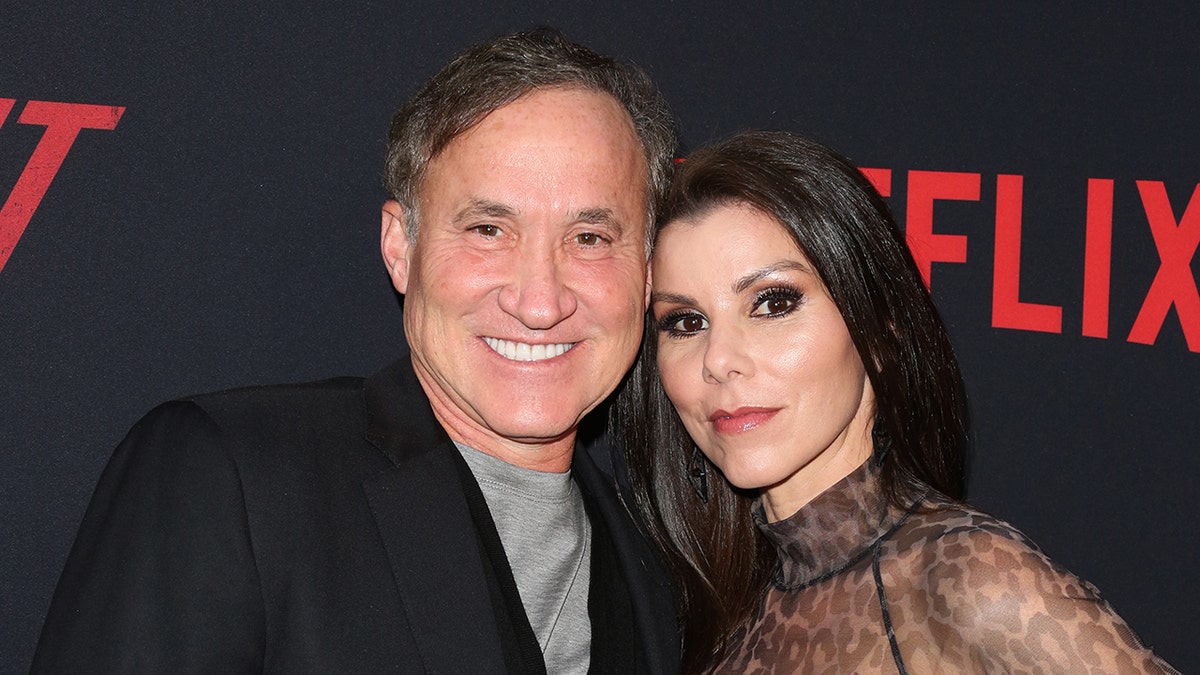
Dubrow says he's "happy" his medical emergency happened so he can use his platform to raise awareness about stroke prevention. (Paul Archuleta/FilmMagic)
"I'm glad it happened to me because we got to use our platform to advertise this possibility and minimize the chances it will happen to other people," he said. "And if it does happen, how to make sure they don't delay getting emergency help, because you have like an hour to get in the hospital and have that clot dissolve. My clot was too small. It didn't need dissolving. That's why it was only temporary. But when you have a real stroke from obstructions or clots, you need immediate treatment and clot-busting drugs."
He added, "Sometimes people with platforms are given these things so that they can effect change. And so we try when something adverse happens, we try not only to focus on it, learn from it, but help other people who have the same kinds of situations. So I'm happy it happened."
